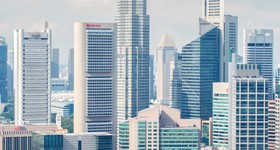Could the impact for Rubella be reduced if we had narrowed the “Vaccine Gap” in Japan earlier?

In 2018, the outbreak of rubella drew a lot of attention both locally and globally. By December 2018, nearly 2,500 rubella cases have been reported, 70% of which were within Tokyo Metropolitan area.

Rubella is an infection caused by rubella virus. Typical symptoms include fever and rash, and this disease may put an infected adult in severe condition. It is especially concerning for pregnant women as there is a high chance of causing congenital rubella syndrome to a baby in uterus, which can lead to deafness, cataracts, heart defects and so on. CDC in the United States raised its alert level of rubella in Japan to “Practice Enhanced Precautions”, suggesting pregnant women to avoid visiting Japan if they are not properly vaccinated.
Only supportive measures are available for rubella, which explains why vaccine is currently the most effective method. In Japan, many patients of rubella are males in their thirties to fifties who previously have missed opportunities in getting vaccinated. Although Japan was once leading in terms of vaccine policies, there had been various lawsuits against the government in the 1970s due to the side effects from several vaccines which led to the inactiveness of adopting routine vaccination. However, with the upcoming Olympics and Paralympics that is planned for 2020, the government is extremely concerned about this outbreak and thus released an announcement that males within this age range would be able to get rubella vaccine for free from 2019.
Though everyone in Japan can get two rubella vaccine for free before they turn 7, there is very little flexibility as to when children can actually receive these vaccines. There is also no actual requirements of vaccine for children entering public schools. As such, this has led to a “Vaccine Gap” that refers to a gap between Japan and other developed countries in terms of how advanced and prevalent vaccines have become.
What created a “Vaccine Gap”?
A relatively small vaccine market in Japan compared on a global scale is one of the major causes of the gap. In 2017, more than 80% of the global market share comprised of GSK, Merck&Co., Sanofi and Pfizer. Japan occupies approximately 13% of the global drug market but only 8% of the vaccine market. Although big players such as Kitasato Daiichi Sankyo, Takeda and Astellas Pharma represent the Japanese vaccine manufacturers, there is a huge difference in scale with GSK’s vaccine sales at 6.7 billion in USD, while it was 400 million dollars for Kitasato Daiichi Sankyo in 2017. This displays the opportunities and potential for Japan to grow its vaccine market.
However, vaccine development requires a significant amount of time and budget. Investment in facilities to enable mass production is necessary even before vaccines are approved, making it difficult for smaller scale companies to break into the market. In 2015, the huge scandal of The Chemo-Sero-Therapeutic Research Institute, one of the biggest vaccine manufacturers in Japan at that time where it had been manufacturing blood derivatives in an unapproved manner whilst hiding its evidence, was brought into light. Consequently, Japan’s Ministry of Health, Labour and Welfare demanded the institution to handover the business. Since then, there has been an increasing demand to reconstruct the vaccine industry in Japan.
Below are some examples of recent business reorganisations in Japan.
- Establishment of BIKEN(September, 2017)
Research Institute for Microbial Diseases, Osaka University and Mitsubishi Tanabe Pharma Corporation co-founded BIKEN Co. Ltd., whose main focus is production of vaccine. Influenza vaccine is one of their main products, which often goes undersupply during winter time. As such, they are looking to strengthen their production base in order to provide a stable supply.
- Daiichi Sankyo acquired 100% ownership of Kitasato Daiichi Sankyo Vaccine(November, 2017)
Daiichi Sankyo announced 100% ownership acquisition of Kitasato Daiichi Sankyo Vaccine, a joint company with The Kitasato Institute. They plan to make the production of vaccines their company’s focus by April 2019.
- Establishment of KM Biologics(July, 2018)
KM Biologics succeeded the main business of The Chemo-Sero-Therapeutic Research Institute, including human vaccine production, and started their operations as a consolidated subsidiary company under Meiji Holdings, which also include Meiji Seika Pharma as a group company.
- Dissolution of Japan Vaccine (November, 2018)
Japan Vaccine was established by Daiichi Sankyo and GSK in 2012 to develop and sell vaccine in Japan. As part of the reorganisation of Daiichi Sankyo, the company announced the winding-up of Japan Vaccine.
Why is there a “Vaccine Gap” in Japan?
While a number of companies try to enhance their competitiveness and increase their market scale, the long process of vaccine approval often hinders their success. Domestic development and production of vaccine is a very time and cost consuming process. In addition, importing vaccines from abroad is yet another time consuming process as imported vaccines too, need to be tested and reviewed even if they had already been approved by authorities abroad such as FDA or EMA.
Besides, adopting new vaccines for regular vaccination requires even stricter reviews to ensure its safety. For example, despite the fact that mumps vaccines are now adopted as a regular vaccination in 121 countries across the world, it’s still voluntary in Japan. Despite once adopting it as a regular vaccination, its safety was questioned after instances of aseptic meningitis resulted after the vaccination. This resulted in its abolishment in 1993. Much discussion had since been held but no MMR vaccine, which covers measles, mumps and rubella, has yet to be approved in Japan. According to the survey held by The Oto-Rhino-Laryngological Society of Japan, at least 348 people became deaf following mumps between 2015 and 2016, which could have been avoided with a proper vaccination policy.
Although the safety of vaccines should be of top priority, it is also crucial to have an easier and faster process in approvals for imported vaccines to ensure a stable supply especially in occurrences of natural disasters which often lead to a steep shortage of vaccines.
What to expect for the vaccine industry and how can we close this “gap”?
In Japan, vaccines are often catered towards children in most cases. However, the importance of vaccines for adults are currently being revised, leading to an active movement of developing vaccines for cancers. TPC marketing research corp. predicts that the world vaccine market will reach 20.7 billion USD by 2021 with 16% growth from 2017. According to Fuji Keizai, the market in Japan is expected to grow by 6.5% from 2015 to 2024, reaching 2.45 billion dollars. EvaluatePharma further analyses that Mitsubishi Tanabe Pharma will be one of the top 10 vaccine providers globally by 2024. The company has just announced a planned application of their new influenza vaccine which can be produced in the shortest period of time ever, merely within a month.
It will be an exciting time in Japan to narrow this “Vaccine Gap” in the next few years, both in its policy and development. This is especially with the predicted growth and the production of new vaccines that are predicted to be very successful.
If you are a professional within the life sciences industry and are keen to find out more about the movement in the market and how it can possibly impact you or your organisation, please contact our Team Manager, Haruko Yamajo on LinkedIn or email us at contactjapan@realstaffing.com. You may also follow our LinkedIn page for other industry-related insights.




